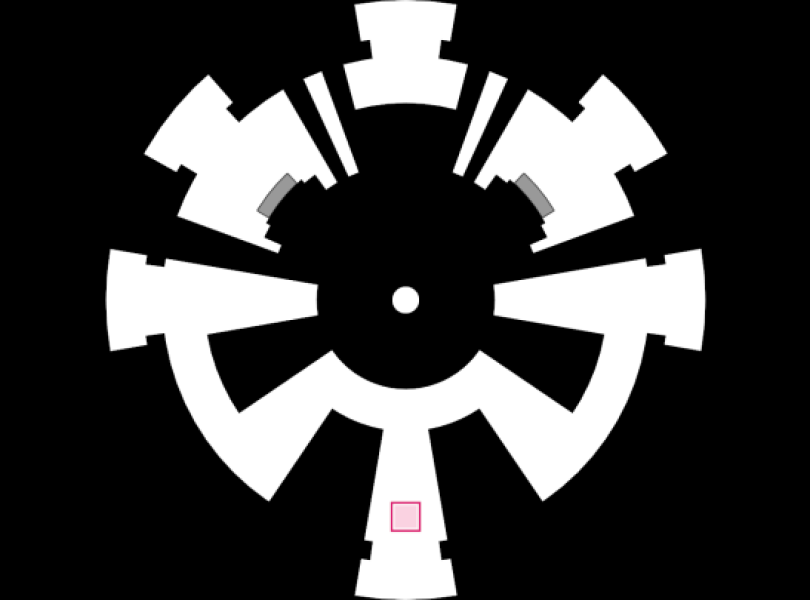A square block in a round playfield.
By Cam Shea
The opening minutes of Expand are absolutely spellbinding. I’m in control of a small pink square, navigating a stark world of concentric circles and wedges that wrap around and jut out from a central point. It’s a hypnotic, almost Zen experience as I follow the 2D paths that arc and morph to guide me through this ever-changing but static space, while wistful piano and strings create a surprisingly emotive musical backdrop. Expand is an engrossing way to spend two or three hours, even if its gameplay is occasionally at odds with the momentum of its journey.
We want to hear it.
Expand is largely a guided experience. You’ll spend most of your time navigating your pink square through shifting mazes, corridors, and spaces, trying to avoid hazards. It’s impressive how much room to move the team have found within Expand’s seemingly limited design space. One moment you might be navigating a maze of concentric circles that rotate based on your movement, the next the space around you is warping as if there’s a black hole at the screen’s centre and you have to fight to escape its pull. In between these more extreme examples are obstacles to be dodged, hidden paths to be revealed, and some neat puzzles to be solved.
If your boxy pink avatar gets wedged by a moving platform or touches a red wall or object, you’ll be reset to the last checkpoint – typically only moments earlier – and the whole world will rotate slightly, putting a subtly different complexion on the path ahead. It’s a neat touch, and for the most part the challenge is well judged.
It’s impressive how much room to move the team have found within Expand’s seemingly limited design space.
In fact, it was only really a stretch of Expand about two thirds of the way through in which I felt like my progress was getting bogged down by constant restarts, thanks largely to more chaotic mazes, and to checkpoints that seemed further apart than before. Expand is less about mechanics than it is progression, so anything that disrupts that to any significant degree risks making it less fun.
Challenge is no bad thing, of course, but Expand’s greatest strength is its ability to drop you into a meditative state; the world unfolding hypnotically around you, the stirring soundtrack setting the scene perfectly.
The more traditional challenges certainly make Expand more of a “game,” but are definitively at odds with that core feeling. Also, we’re talking about a square box navigating through a circular world, so it’s hard not to clip the edges of obstacles. I’d have liked to see a greater emphasis on puzzles instead of tests of reflexes and precision, as the ones that are here – simple though they are – work wonderfully well.
It’s also interesting that Expand shies away from anything more than an instructional commentary on its world, with very minimal use of text. The gameplay and other presentational elements do stand on their own, however, thanks largely to the bold, clean, and stylish visual design and absolutely superb score. Do yourself a favour and get the Soundtrack Edition – USD $10 is an absolute bargain.
Expand is a little uneven across its brief two to three-hour playtime, but it’s clear a lot of love has been poured into the crafting of this beautifully minimalist puzzle game. This unique experience is well-paced, polished, and brimming with ideas, and backed by one of the best scores I’ve heard in years.




